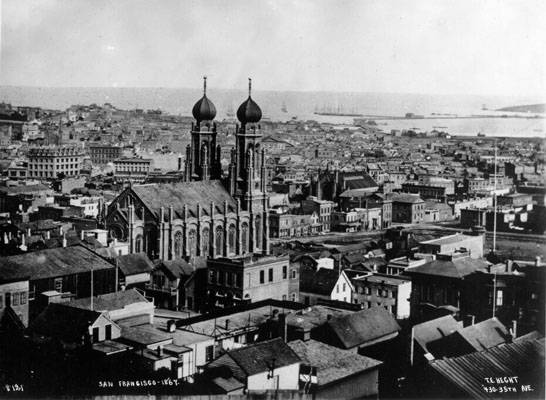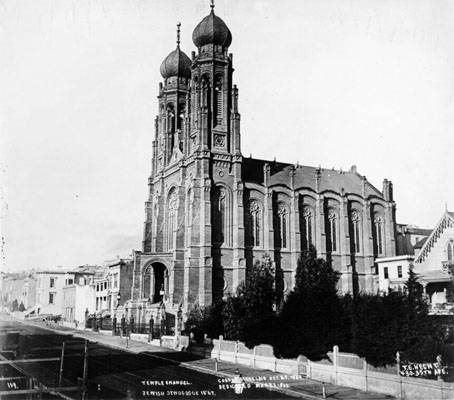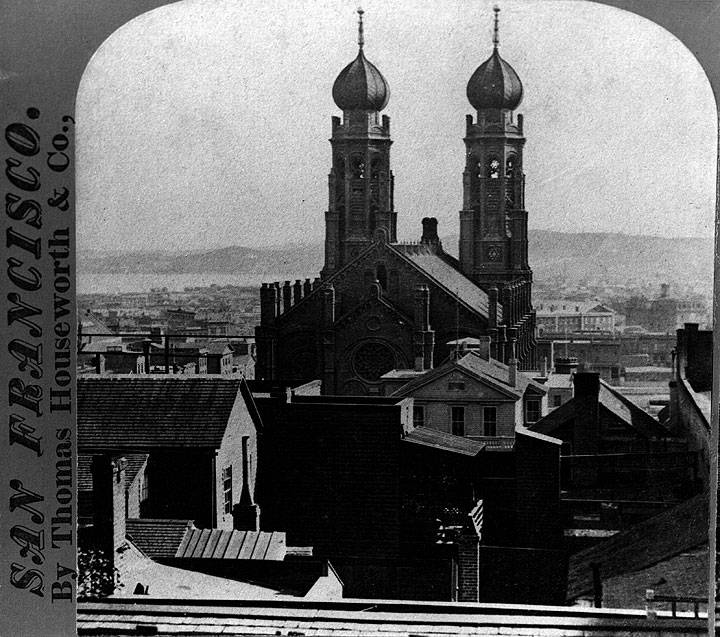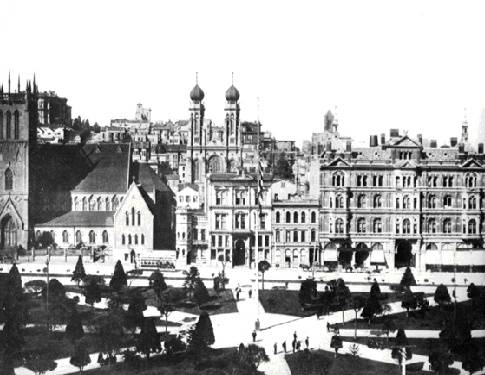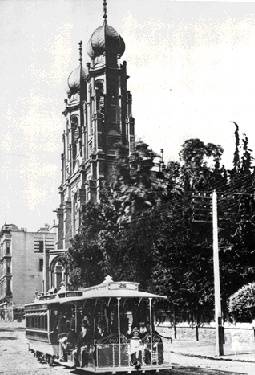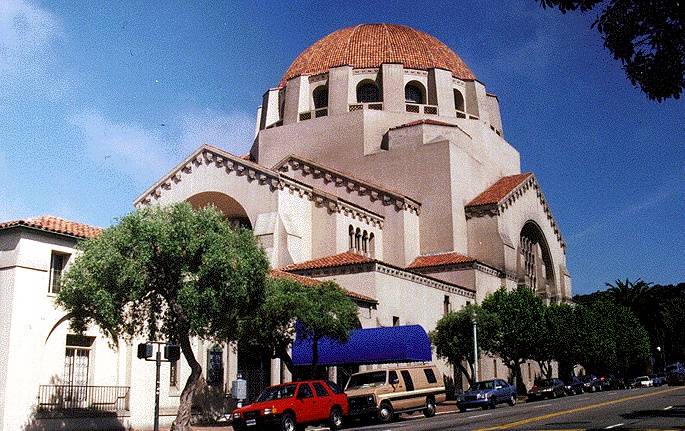Temple Emanu-El of SF: Difference between revisions
added photo |
No edit summary |
||
| Line 27: | Line 27: | ||
[[Image:jewishsf$old-temple-emmanu-el.jpg]] | [[Image:jewishsf$old-temple-emmanu-el.jpg]] | ||
'''The old Temple Emanu-El on Sutter near Powell Street ( | '''The old Temple Emanu-El on Sutter near Powell Street (fire ravaged the inside in 1906, but the temple was repaired and opened again in 1907. The congregation moved to Lake and Arguello in the mid 20s). ''' | ||
''Photo: San Francisco History Center, San Francisco Public Library'' | ''Photo: San Francisco History Center, San Francisco Public Library'' | ||
Latest revision as of 12:24, 9 April 2019
Unfinished History
Temple Emanu-El, 1867, Mission Bay and Long Bridge in distance.
Photo: San Francisco History Center, San Francisco Public Library
Temple Emanu-El, 1867.
Photo: San Francisco History Center, San Francisco Public Library
Temple Emanu-El, viewed from behind looking south, c. 1870s.
Photo: Thomas Houseworth, courtesy Private collection
View north across Union Square 1891.
Photo: San Francisco History Center, San Francisco Public Library
The old Temple Emanu-El on Sutter near Powell Street (fire ravaged the inside in 1906, but the temple was repaired and opened again in 1907. The congregation moved to Lake and Arguello in the mid 20s).
Photo: San Francisco History Center, San Francisco Public Library
Temple Emanu-El was the wealthier of two original Jewish congregations, representing the German-born Jews in early San Francisco.
On Rosh Hashana of 1849 the young merchant Lewis Abraham Franklin's storage tent on Jackson Street became the site of the first Jewish service held in San Francisco. However, the first synagogue would not be established for five more years.
A rift between those of German and Polish background marked a breakdown within the small Jewish community. The establishment of two separate synagogues in 1854 - Emanu-El for the German Jews, and Sherith Israel helped solidify the division that would last well into the 20th century. The German Jews brought to America their European cultural bias against Eastern European Jews as inferior and considered themselves the "aristocrats of the emigres."
The Temple Emanu-El congregation of 260 mostly German Jews soon moved into a newly built large and elegant synagogue on 450 Sutter St. in 1864. Dr. Julius Eckman, an active pro-Union supporter during the Civil War and ironically a Polish Jew, was the first rabbi to preside over the elite congregation.
Temple Emanu-El, 1996
Photo: Chris Carlsson

